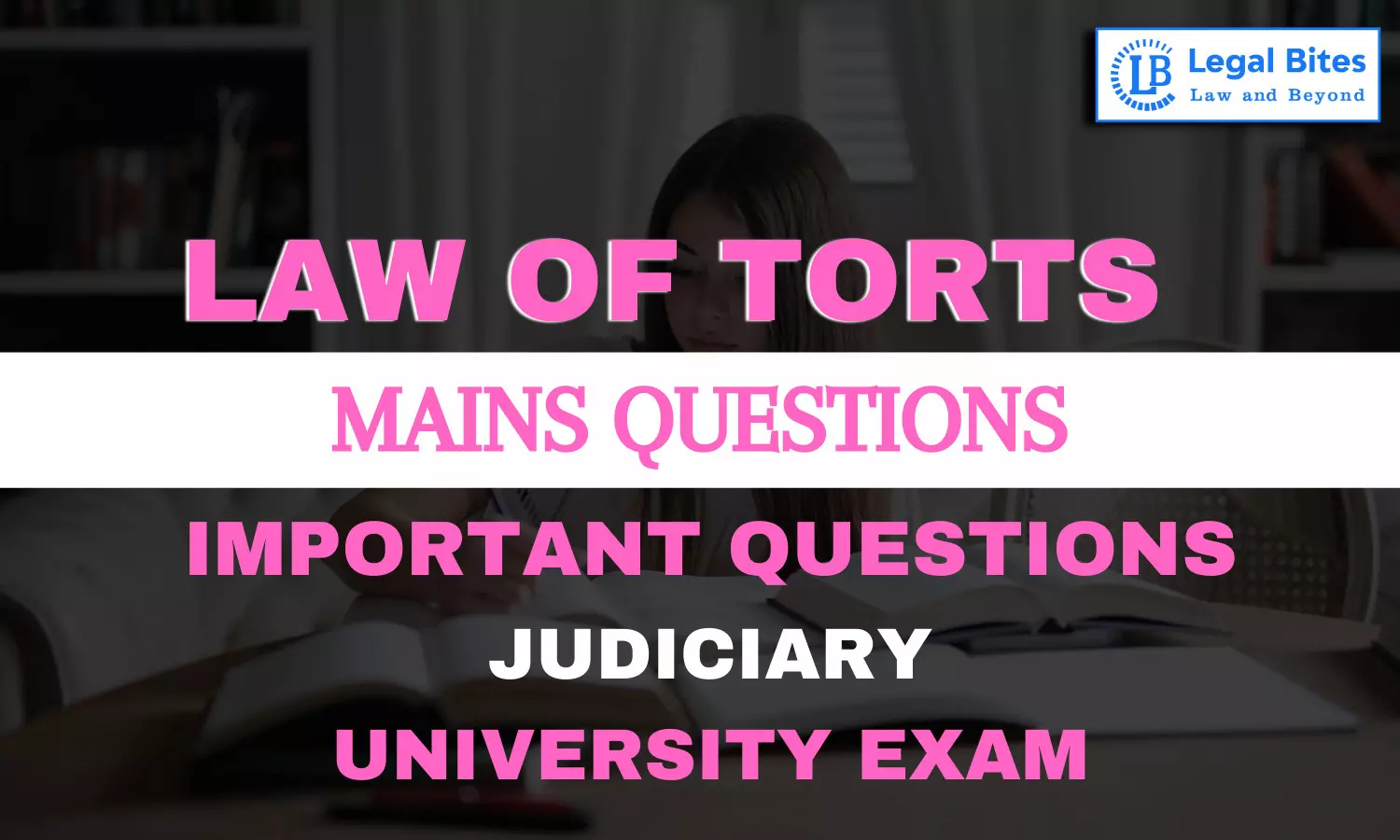What limitations are there to the maxim respondeat superior?
Find the question and answer of Law of Torts only on Legal Bites.

Question: What limitations are there to the maxim respondeat superior?Find the question and answer of Law of Torts only on Legal Bites. [What limitations are there to the maxim respondeat superior?]AnswerThe maxim respondeat superior is a Latin term meaning "let the master answer." In the context of tort law, it refers to the principle that an employer is liable for the wrongful acts committed by an employee while acting within the scope of their employment. However, there are...
Question: What limitations are there to the maxim respondeat superior?
Find the question and answer of Law of Torts only on Legal Bites. [What limitations are there to the maxim respondeat superior?]
Answer
The maxim respondeat superior is a Latin term meaning "let the master answer." In the context of tort law, it refers to the principle that an employer is liable for the wrongful acts committed by an employee while acting within the scope of their employment. However, there are several limitations to this principle that have been established through landmark case laws.
Frolic and Detour: The employer is not liable for the wrongful acts of an employee who has departed from the scope of employment and engaged in a "frolic and detour." This means that if the employee deviates from their duties and commits an act that is entirely personal and unrelated to their employment, the employer is not liable for the employee's actions. The landmark case that established this limitation is Storey v. Ashton, (1869) L.R. 4 Q.B. 476, where a servant borrowed his employer's horse to ride home but instead used it for his own personal errands, and the horse caused an accident. The court held that the employer was not liable because the servant had gone beyond the scope of his employment.
Intentional Acts: The employer is not liable for the intentional torts committed by an employee if the employee's acts were not within the scope of their employment. This means that if the employee acts intentionally, such as committing assault or battery, the employer is not liable unless the employee's actions were committed in furtherance of their employment duties. The landmark case that established this limitation is Farwell v. Boston and Worcester R.R. Co, (1842), where a railway conductor pushed a passenger off a moving train. The court held that the employer was not liable because the conductor's actions were not within the scope of his employment duties.
Independent Contractors: The employer is not liable for the wrongful acts committed by an independent contractor. An independent contractor is someone who is hired to perform a specific job but is not under the direct control of the employer. This means that if the independent contractor commits a wrongful act, the employer is generally not liable. The landmark case that established this limitation is Lee v. Riley, (1865) 18 C.B. (N.S.) 722, where the employer hired an independent contractor to operate a crane, and the independent contractor caused an accident. The court held that the employer was not liable because the independent contractor was not an employee.
Criminal Acts: The employer is generally not liable for the criminal acts committed by an employee unless the employer knew or should have known that the employee had a propensity for criminal behaviour. This means that if an employee commits a criminal act, such as theft or fraud, the employer is not liable unless the employer knew or should have known that the employee was likely to engage in such behaviour.
The maxim respondeat superior is a fundamental principle in tort law, but there are several limitations to its application. These limitations have been established through landmark case laws and help to ensure that employers are only held liable for the wrongful acts of their employees when the employee's actions are within the scope of their employment and the employer had some level of control or knowledge over the situation.

Mayank Shekhar
Mayank is an alumnus of the prestigious Faculty of Law, Delhi University. Under his leadership, Legal Bites has been researching and developing resources through blogging, educational resources, competitions, and seminars.
